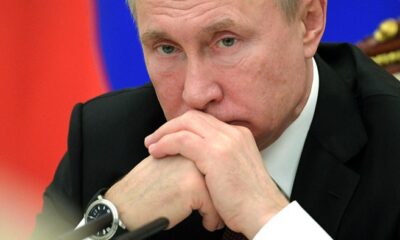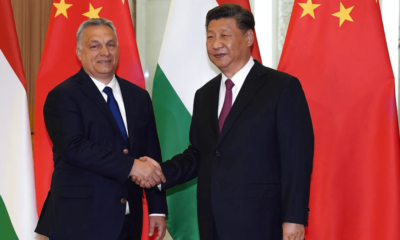Defense
Iran’s Retaliation Against Israel for Haniyeh’s Killing Will Be Deliberate, Says IRGC
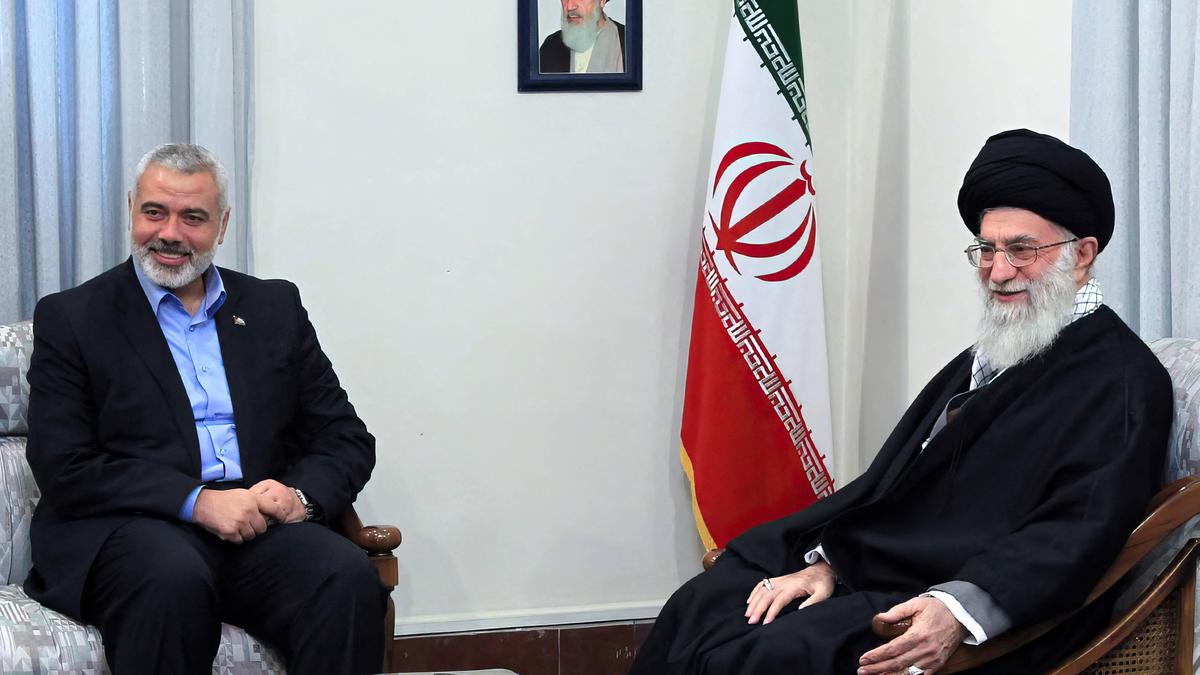
Iran’s promised retaliation against Israel for the assassination of Hamas political leader Ismail Haniyeh in Tehran will be measured and may take time, according to a spokesperson for the Islamic Revolutionary Guard Corps (IRGC). Ali Mohammad Naeini, speaking on Tuesday, emphasized that Iran’s response will not be rushed, stating, “Time is on our side, and the waiting period for this response may be prolonged.”
The Middle East has been on high alert since Haniyeh’s assassination last month, which followed the killing of Hezbollah commander Fu’ad Shukr in Beirut. While Israel claimed responsibility for Shukr’s death, it has not confirmed its involvement in Haniyeh’s assassination. Reports suggest that Haniyeh was killed by an explosive device planted in the guest house where he was staying.
Iran, along with its proxies Hezbollah and Hamas, has blamed Israel for both killings and vowed retaliation. This has spurred weeks of intense diplomatic efforts to prevent a broader regional conflict. Iranian Supreme Leader Ali Khamenei issued a stern warning to Israel, saying, “You have killed our dear guest in our house and now have paved the way for your harsh punishment.” Hezbollah’s leader also declared that a response to Shukr’s death was “inevitable.”
Despite these threats, Naeini’s recent comments indicate a shift from the earlier, more aggressive rhetoric. He suggested that Iran’s response could differ from previous operations, hinting at a more strategic approach. “For now, the Zionists must live in instability, and Iran’s response may not be a repeat of past operations,” Naeini said, adding that Iranian commanders are experienced and will not act hastily.
This approach marks a contrast to Iran’s actions in April when it launched 300 projectiles at Israel in retaliation for an airstrike on an Iranian diplomatic building in Damascus. Naeini also claimed that Israel and its allies have failed to achieve their objectives in the ongoing war in Gaza, which has now lasted over 10 months.
As diplomatic efforts continue, particularly in Qatar, there have been suggestions that Iran might reconsider its plans to strike Israel if a ceasefire agreement is reached. However, Iran’s mission to the United Nations recently stated that any retaliation is “totally unrelated to the Gaza ceasefire.” Some officials believe that Iran and Hezbollah may be hesitant to act, fearing the potential for a wider conflict.
Defense
Ukraine’s Bold Incursion into Russia Exposes Moscow’s Vulnerabilities
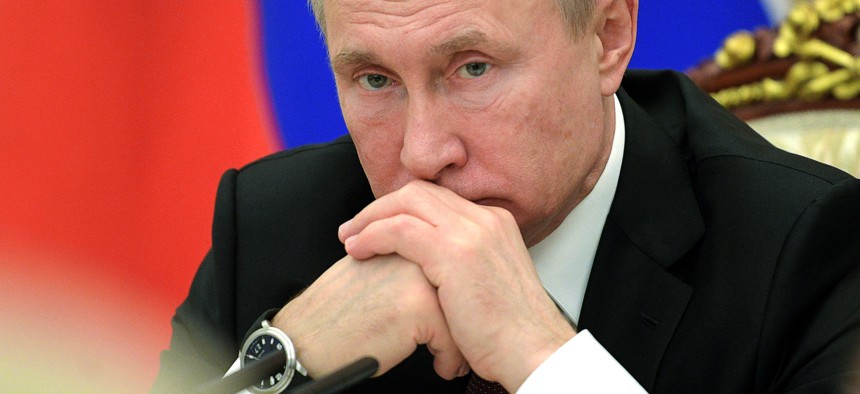
In a daring and unexpected move, Ukraine has launched a military incursion into Russia’s Kursk region, challenging Moscow’s perceived invulnerability and turning the tide in a conflict that has repeatedly exposed the frailties of Vladimir Putin’s Russia.
Two months ago, as Russian forces advanced into Ukraine’s Kharkiv region, Kyiv appeared to be on the defensive, closely monitoring its borders for potential vulnerabilities. However, Ukraine instead identified a significant weakness on the Russian side, leading to a strategic reversal that has caught Moscow off guard.
A week into the operation, Ukraine’s decision to send thousands of troops across the border into Russia’s Kursk region is yielding significant results. For the second time in just over a year, the Kremlin finds itself confronting a hostile force within its own territory, with few effective responses at its disposal. Last year, it was the rogue mercenaries of the Wagner Group marching towards Moscow; now, it is Ukraine’s military, which claims to have seized control of 1,000 square kilometers of Russian territory.
While some analysts estimate the figure to be closer to one-third of that, the very fact that Ukraine’s commander, Oleksandr Syrskyi, can make such a claim represents a major victory in the information war. The move has drawn praise from international observers, with U.S. Senator Lindsey Graham calling Ukraine’s cross-border operation “bold, brilliant, and beautiful,” while Senator Richard Blumenthal described it as a “historic” and “seismic breakthrough.”
This incursion highlights the stark contrast between the Kremlin’s image of impregnable power and the reality of its increasingly exposed and vulnerable position. Unlike Wagner’s failed mutiny, which disintegrated when its leader, Yevgeny Prigozhin, realized he was on his own, Ukraine’s forces appear to be advancing with determination, unhindered by Moscow’s disjointed and ineffective response.
The lack of transparency in Russia’s military and political system, where mistakes are hidden rather than addressed, is playing into Kyiv’s hands. Reports of Ukrainian troops deep within Russian territory, including a video from the town of Lgov, 26 miles from the border, suggest that Moscow may not fully comprehend the extent of the situation.
On Monday, Kursk’s acting governor, Alexei Smirnov, informed Putin on state television that 28 settlements were under Ukrainian control, with 2,000 residents unaccounted for and 121,000 people evacuated. Despite assurances from Russia’s chief of staff, Valery Gerasimov, that the Ukrainian advance had been halted, it is clear that the situation remains dire.
As Ukraine continues its advance, questions arise about the long-term strategy and implications of this operation. Will Kyiv attempt to hold any of the captured territory? How much of its resources is it willing to commit to this bold move? And what impact will this have on Ukraine’s more challenging frontline in Donbas, where Russian forces are making slow but steady gains?
While the immediate outcome of Ukraine’s incursion remains uncertain, the operation has already dealt a significant blow to Moscow’s image and raised doubts about the Kremlin’s ability to maintain control. As the conflict enters a new phase, the world watches closely to see how this bold gamble by Kyiv will reshape the course of the war.
Defense
Ukraine Claims Missile Strike Sinks Russian Submarine in Sevastopol
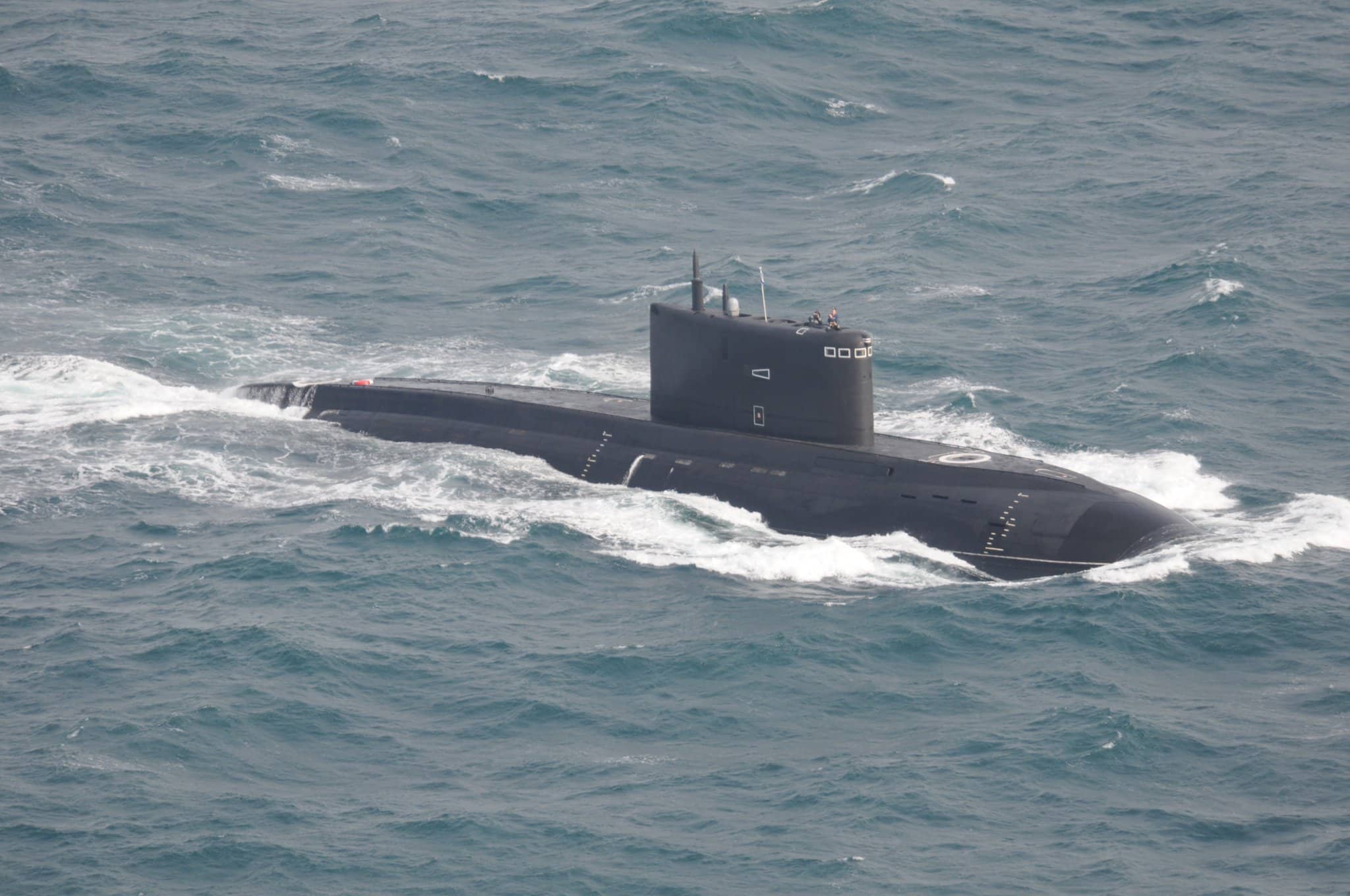
Ukraine’s military announced on Saturday that a missile strike had sunk a Russian Black Sea Fleet submarine in the Russian-occupied port of Sevastopol. The submarine, identified as the B-237 Rostov-on-Don, was an attack submarine capable of launching Kalibr cruise missiles.
The Ukrainian defense ministry confirmed the successful strike in a post on X, stating, “A Russian submarine went to the bottom of the Black Sea.” The submarine had reportedly sustained significant damage in an earlier attack in September 2023 but had since been repaired. The estimated value of the submarine was €275 million.
In addition to the submarine strike, Ukraine also claimed to have targeted a southern Russian airfield and hit oil depots in Belgorod, Kursk, and Rostov. Local media reported that Ukrainian forces struck an airfield in Russia’s Rostov Oblast, allegedly hitting an ammunition depot that stored glide bombs and other weapons.
Ukrainian President Volodymyr Zelenskyy commended the Ukrainian military for these operations. “It is most effective when the consequences of the Russian war are brought back home to Russia,” he said in an evening address on Saturday.
There was no immediate comment from Russia regarding the apparent attack on Sevastopol or the other claimed strikes. The situation remains tense as both sides continue to engage in escalating military actions.
These developments come amid ongoing hostilities between Ukraine and Russia, with each side launching attacks and counterattacks in a protracted conflict that has drawn international attention and condemnation. The strike on the submarine and the additional attacks on Russian infrastructure highlight Ukraine’s strategy to extend the conflict’s impact into Russian-controlled territories.
As the conflict persists, both Ukrainian and Russian forces are expected to continue their aggressive posturing, further complicating prospects for peace and stability in the region.
-

 Business1 year ago
Business1 year agoSaudi Arabia’s Model for Sustainable Aviation Practices
-

 Business1 year ago
Business1 year agoRecent Developments in Small Business Taxes
-

 Politics1 year ago
Politics1 year agoWho was Ebrahim Raisi and his status in Iranian Politics?
-

 Business11 months ago
Business11 months agoCarrectly: Revolutionizing Car Care in Chicago
-

 Business11 months ago
Business11 months agoSaudi Arabia: Foreign Direct Investment Rises by 5.6% in Q1
-

 Technology1 year ago
Technology1 year agoComparing Apple Vision Pro and Meta Quest 3
-

 Politics1 year ago
Politics1 year agoIndonesia and Malaysia Call for Israel’s Compliance with ICJ Ruling on Gaza Offensive
-

 Sports10 months ago
Sports10 months agoKeely Hodgkinson Wins Britain’s First Athletics Gold at Paris Olympics in 800m



